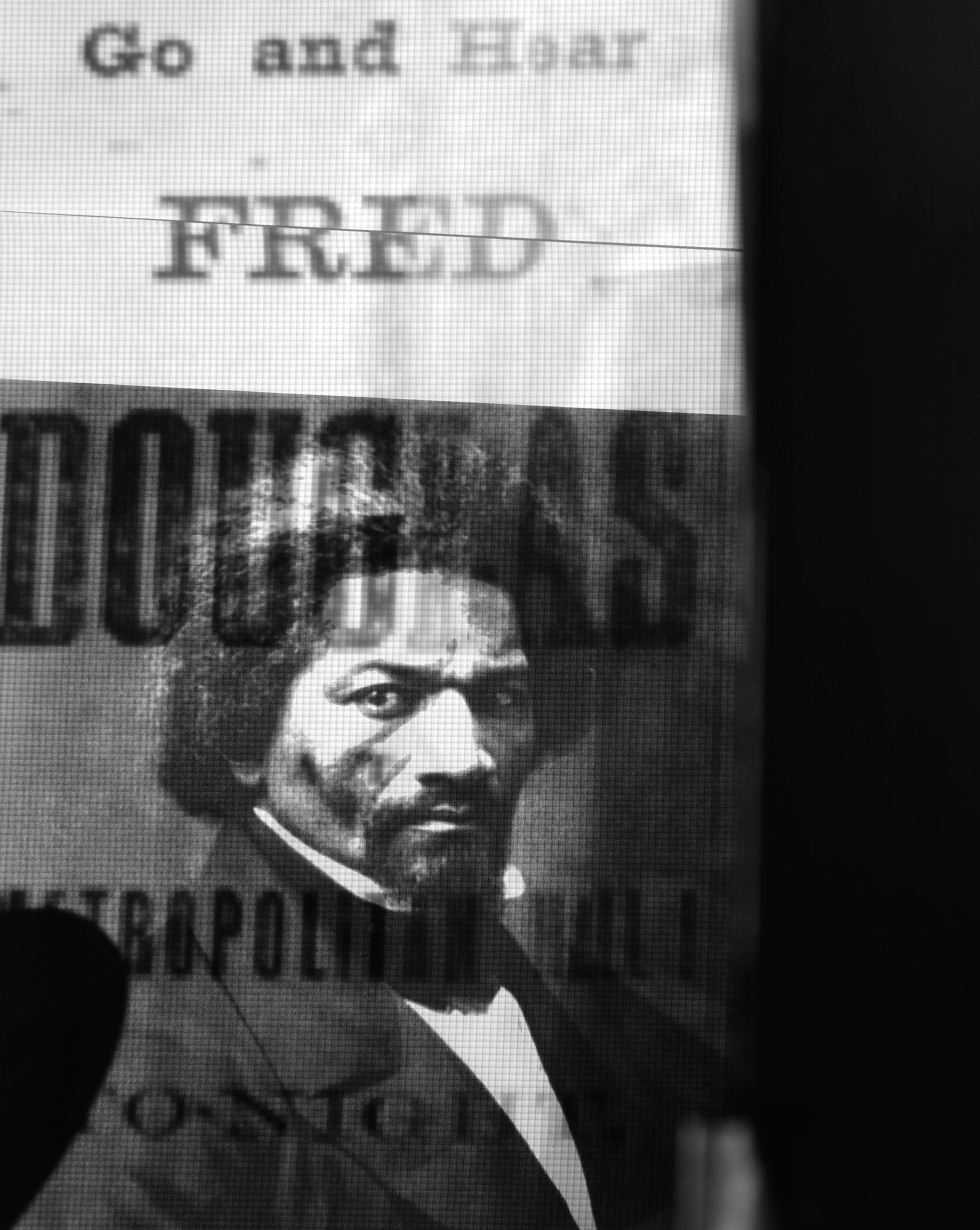
In his third autobiography, Life and Times of Frederick Douglass, while reflecting on the end of the Civil War, Douglass admitted that "a strange and, perhaps, perverse feeling came over me." Great joy over the ending of slavery, he wrote, was at times "tinged with a feeling of sadness. I felt I had reached the end of the noblest and best part of my life; my school was broken up, my church disbanded, and the beloved congregation dispersed, never to come together again.” In recalling the postwar years, Douglass drew from a scene in a Shakespearean tragedy to express his memory of that moment: "Othello's occupation was gone.' In Othello, Douglass perceived a character, the former high-ranking general and "moor of Venice," who had lost authority and professional purpose. Douglass harbored a special affinity for this most famous Black character in Western literature, whose mental collapse and horrible end lingered as a warning in a famous speech: "O, now, for ever / Farewell the tranquil mind! Farewell content!"
In 1866, Douglass took up his pen to try to capture this mome of transformation, both for himself and for the United States. For the December issue of this magazine that year, in an essay simply titled "Reconstruction," Douglass observed that "questions of vast moment" lay before Congress and the nation. Nothing less than the essential results of the "tremendous war," he writes, were at stake. Would the war become "a miserable failure ... a scandalous and shocking waste of blood and treasure," or a "victory over treason," resulting in a newly reimagined nation "delivered from all contradictions and based loyalty, liberty, and equality"? In this inquiry, Douglass's new role as a conscience of the country became clarified. His leadership had always been through words and persuasion, written and oratorical. How, now that the war was over, would he employ his incomparable voice?
Diese Geschichte stammt aus der December 2023-Ausgabe von The Atlantic.
Starten Sie Ihre 7-tägige kostenlose Testversion von Magzter GOLD, um auf Tausende kuratierte Premium-Storys sowie über 8.000 Zeitschriften und Zeitungen zuzugreifen.
Bereits Abonnent ? Anmelden
Diese Geschichte stammt aus der December 2023-Ausgabe von The Atlantic.
Starten Sie Ihre 7-tägige kostenlose Testversion von Magzter GOLD, um auf Tausende kuratierte Premium-Storys sowie über 8.000 Zeitschriften und Zeitungen zuzugreifen.
Bereits Abonnent? Anmelden

JOE ROGAN IS THE MAINSTREAM MEDIA NOW
What happens when the outsiders seize the microphone?

MARAUDING NATION
In Trumps second term, the U.S. could become a global bully.

BOLEY RIDES AGAIN
America’s oldest Black rodeo is back.

THE GENDER WAR IS HERE
What women learned in 2024

THE END OF DEMOCRATIC DELUSIONS
The Trump Reaction and what comes next

The Longevity Revolution
We need to radically rethink what it means to be old.

Bob Dylan's Carnival Act
His identity was a performance. His writing was sleight of hand. He bamboozled his own audience.

I'm a Pizza Sicko
My quest to make the perfect pie

What Happens When You Lose Your Country?
In 1893, a U.S.-backed coup destroyed Hawai'i's sovereign government. Some Hawaiians want their nation back.

The Fraudulent Science of Success
Business schools are in the grips of a scandal that threatens to undermine their most influential research-and the credibility of an entire field.